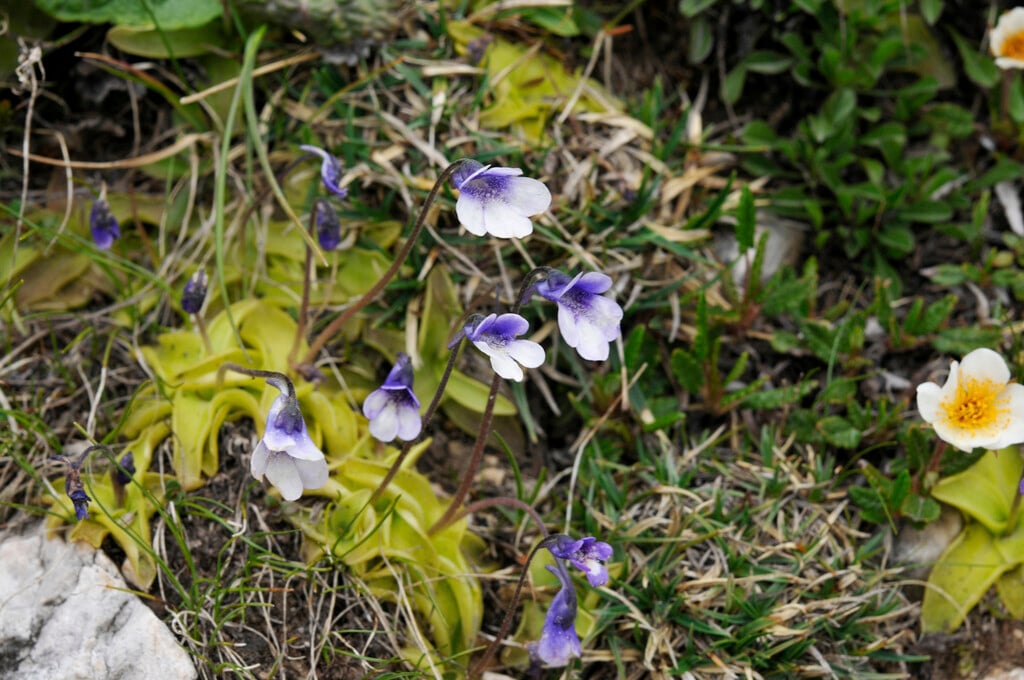Pinguicula vulgaris
common butterwort
A perennial, carniverous plant with low-growing, pale yellow-green leaves which form a star-shaped rosette and excrete a sticky substance to attract and capture prey, curling up to keep the prey inside. Bright purple, funnel-shaped flowers with a speckled white interior appear from May to July. Thrives in damp and boggy locations
Other common names
bog violetbutter root
see morecommon butterwort
eccle grass
rot grass
rots
sheep root
sheeprot
sheepweed
steep grass
Yorkshire fog
Yorkshire sanicle

Buy this plant
Size
Ultimate height
0.1–0.5 metresTime to ultimate height
2–5 yearsUltimate spread
0–0.1 metreGrowing conditions
Moisture
Moist but well–drained, Poorly–drainedpH
Acid, NeutralColour & scent
| Stem | Flower | Foliage | Fruit | |
| Spring | Purple White | Yellow Green | ||
|---|---|---|---|---|
| Summer | Purple White | Yellow Green | ||
| Autumn | Yellow Green | |||
| Winter |
Position
- Full sun
- Partial shade
Aspect
East–facing or South–facing or West–facing
Exposure
Sheltered Hardiness
H6Botanical details
- Family
- Lentibulariaceae
- Native to GB / Ireland
- Yes
- Foliage
- Deciduous
- Habit
- Clump forming
- Genus
Pinguicula are a genus of around 80 species of, mainly perennial, flowering carnivorous plants with sticky leaves which attract and digest insects. Leaves are succulent-like and flowers mainly blue, violet or white
- Name status
Correct
How to grow
Cultivation
Grow in a compost mix comprising one part each peat substitute, coarse sand, perlite and dolomitic limestone chippings. Position in bright, filtered light. In growth, water freely; in winter water sparingly. See carnivorous plant cultivation for further advice
Propagation
Propagate by seed sown as soon as ripe on the surface of damp sphagnum moss with gentle heat, or separate resting buds in late winter
Suggested planting locations and garden types
- Houseplants
- Conservatory and greenhouse
Pruning
No pruning required
Pests
Generally pest-free
Diseases
Generally disease-free
Get involved
The Royal Horticultural Society is the UK’s leading gardening charity. We aim to enrich everyone’s life through plants, and make the UK a greener and more beautiful place.